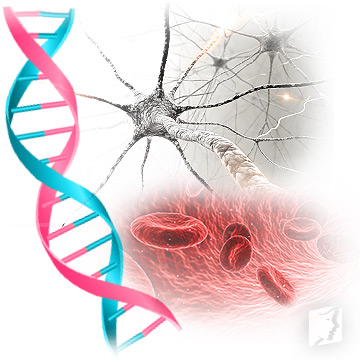In general, there is much confusing surrounding which vitamin and mineral supplements women should take as they transition into their infertile years. Even though vitamin B12 is often recommended, not many women really understand why.
Continue reading to learn all about vitamin B12 and menopause, including what it is, why it's important in aging individuals, how its deficiency is related to menopause, and much more.
Vitamin B12 Consumption

Vitamin B12, or cobalamin, is a water-soluble vitamin that is necessary for proper red blood cell formation, cognitive function, and nerve and DNA synthesis in all life stages.
Vitamin B12 cannot be created by the body and needs to be consumed from foods or supplements for those suffering from malabsorption.
Foods high in vitamin B12 include meat, eggs, poultry, and dairy products. Vegans and vegetarians should look for foods fortified with vitamin B12, such as breakfast cereals and nutritional yeast.
However, because people do not consume the recommended dietary allowances (RDAs) of the essential vitamin, there is an increasing tendency in vitamin B12 deficiency, especially among older generations.
The National Health and Nutrition Examination Survey estimates that over 3 percent of adults above the age of 50 have very low vitamin B12 levels, while up to 20 percent have a borderline deficiency.1
Other evidence suggests that up to 50 percent of adults over the age of 70 have decreased gastric acidity, which further interferes with vitamin absorption.2
Deficiency of Vitamin B12 and Menopause Symptoms

Numerous studies have shown a link between vitamin B12 deficiency and cognitive dysfunction and memory loss in women passing through perimenopause and into postmenopause.3
Moreover, low levels of B12 are linked to low bone mineral density (BMD), which could lead to eventual osteoporosis if not caught early enough.3
Other symptoms indicating a deficiency in vitamin B12 include:
- Tingling extremities
- Fatigue
- Weakness
- Anemia
- Difficulty walking
- Among others
While there is much debate regarding a vitamin B12 deficiency and hot flashes, reliable research connecting the two is yet to be developed.
Also, because many of the vitamin B12 deficiency symptoms overlap with those common of menopause, it is important women meet with their doctors to undergo proper diagnostic testing if a deficiency is suspected.
Other Nutrients for Menopause
While there are a myriad of vitamin B12 benefits for menopausal women, numerous other vitamins and minerals for menopause should not be forgotten by women as they transition through these transformative years.
Some of the principal ones include vitamins E and D as well as the minerals calcium and magnesium. For optimal endocrine system health and hormonal balance, women should also consider the use of phytoestrogenic supplements - like black cohosh or red clover - or hormone-regulating supplements, like Macafem, either of which can be an integral part of a personalized menopause symptoms treatments plan.
Key Takeaways
Vitamin B12 is a water-soluble vitamin that is needed for proper red blood cell formation, cognitive function, and more. Its deficiency is more common in older adults due to malabsorption or poor eating habits, seeing as it needs to be consumed from the diet or through supplements. Vitamin B12 deficiency symptoms include memory loss, tingling extremities, fatigue, anemia, and more, many of which coincide with common menopause symptoms. Luckily, with proper vigilance, low levels can be diverted from becoming a deficiency, and a good health status can be achieved for optimal health and well-being for years on out.
Sources
- National Institutes of Health. (2019). Vitamin B12. Retrieved September 10, 2019, from https://ods.od.nih.gov/factsheets/VitaminB12-HealthProfessional/
- Santoro, N. et al. (2015). Menopause Symptoms and Their Management. Endocrinology and Metabolism Clinics of North America, 44(3), 497-515. doi: 10.1016/j.ecl.2015.05.001
Footnotes:
- Harvard Health Publishing. (2019). Vitamin B12 deficiency can be sneaky, harmful. Retrieved September 10, 2019, from https://www.health.harvard.edu/blog/vitamin-b12-deficiency-can-be-sneaky-harmful-201301105780
- Lipsky, M.S. et al. (Eds.). (2007). Family Medicine Certification Review. Philadelphia: Lippincott Williams & Wilkins. Available from Google Books.
- Milart, P. et al. (2018). Selected vitamins and quality of life in menopausal women. Przeglad Menopauzalny, 17(4), 175-179. doi: 10.5114/pm.2018.81742

